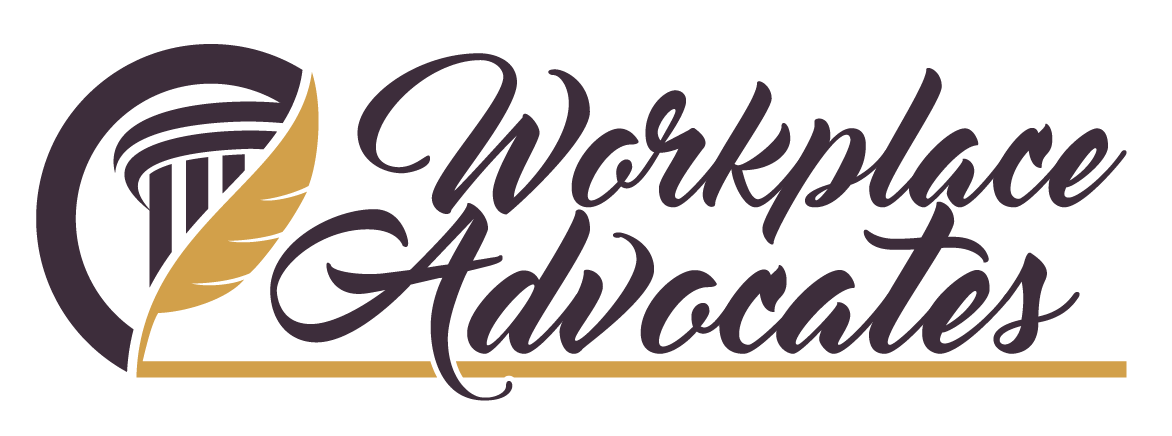Know Your Rights
It’s no secret that many large employers in the United States discriminate against employees and violate their civil rights. Employment law cases are complex, so it’s difficult for employees to assert their rights against big businesses and their teams of well funded lawyers. Workplace Advocates is the “David” that’s successfully brought down “Goliath” hundreds of times, often collecting in excess of one million dollars in damages. If you’ve been discriminated against, harassed, subjected to to a hostile environment, we’ll help you go up against the big corporations and achieve the remedies you’re entitled to under the law.

Fearless champions of employee rights.
Federal, State, and Local Civil Rights Laws
Workplace Advocates focuses its practice on civil rights laws that impact employment. The Civil Rights Act of 1964, proposed by President John F. Kennedy, and signed into law by President Lyndon Johnson after Kennedy’s assassination, was the first federal legislation to prohibit discrimination based on race, color, religion, sex, or national origin. The courts have expanded the federal protection against discrimination based on sex to include discrimination based on sexual orientation. California’s Fair Housing and Employment Act (FEHA) expands protection from discrimination to many more classifications such as childbirth status, hair texture/style, gender expression/identity, ancestry, breastfeeding, genetic characteristics, military/veteran status, and marital status. Arizona has state civil rights laws, but they do not expand protection much beyond the federal classifications.
Employment Discrimination
Discrimination in the workplace can be any type of negative treatment on the job that’s caused by being a member of a protected class or because you’re perceived as being part of that group. For example, if you’re a straight man that likes to wear pink shirts, but you’re denied a promotion because your employer thinks you’re gay, you would have a claim for discrimination based on sexual orientation. Let’s say you’re from Greece, but your employer allows your co-workers to taunt you with epithets because they think you’re Mexican – the same logic applies. The interpretation of civil rights laws is being expanded by legislation and the courts to give employees much more ability to express themselves through how they dress and wear their hair. If you’re not sure if the discrimination against you violates the law, Workplace Advocates will be happy to speak to you about you claim. These are some examples of the types of employment situations where discrimination is prohibited:
• Employment Advertising;
• Recruitment;
• Pre-Employment Inquiries;
• Background Checks;
• Job Referrals;
• Training Opportunities;
• Assignments;
• Promotions;
• Application and Hiring;
• Discipline;
• Termination;
• Compensation and Benefits;
• References;
• Perks;
• Dress Code.
Employers can impose rules for all employees, but can’t single out some groups for differing treatment. For example, an employer can require a uniform for all employees, but a casual dress code that permits jeans should also allow employees to wear traditional ethnic clothing. Limiting recruitment for a large company to recommendations from friends and family could result in discrimination if all the new hires were from the same ethnic group as the owners. Gone are the days of ads seeking “Girl Fridays” or “Bus Boys,” but employers must be careful not to request “recent college graduates” as it can imply age discrimination.
Hostile Work Environment and Harassment
The law recognizes that creating or allowing a harassment or a hostile work environment is a type of employment discrimination. The harassment or hostile work environment can directed at the person’s sex, but can also due to their race, national origin, disability, or any other classifications protected under the law. Harassment is usually defined as some type of “quid pro quo” such as expecting sexual favors to secure a promotion. Hostile work environment arises when an employer creates or allows an environment so toxic that it interferes with an employee’s ability to do their job. The courts require proof that the hostile environment is severe and pervasive. Generally, in order to have a successful claim, the conduct must occur more than once and the employer must be given a chance to correct the situation. For example, if a manager tells a sexually suggestive joke, the offended employee tells the manager that they’re offended, and it never happens again, there would be no case. Another example would be a Latino employee that complains to human resources about a group of co-workers making offensive remarks about Latinos. If the employer takes action against the responsible employees and puts a stop to it, there would be no case. On the other hand, one particularly heinous incident could be sufficient to meet the legal standard for a hostile work environment, such as hanging a noose on an African-American employee’s locker or a placing blow up doll on a female employee’s desk. At Workplace Advocates, we know that every case is different, so we take the time to listen carefully to your story so that we can properly advise you about your claim.
Sexual Abuse In The Workplace
Sometimes employers take advantage of the sway they have over employees to commit acts of sexual abuse. Employees are often afraid to report these crimes due to their fear of losing their job and/or health insurance. It takes courage to come forward, but it’s possible with the support of a firm like Workplace Advocates with experience handling cases of sexual abuse in the workplace. Once you come forward, you can assist the district attorney with their criminal case as well as a bringing a civil action for damages against the responsible parties. Non-consensual, purposeful physical contact is never appropriate in the workplace, even if it takes place after hours. Physical contact between a supervisor and an employee could be considered sexual abuse even if the employee consents due to the imbalance of power in the relationship. Workplace Advocates provides a free confidential consultation to discuss allegations of sexual abuse in the workplace.
California and Arizona Civil Rights Lawyer
If you’ve been discriminated against, harassed, or subjected to working in a hostile environment, you have a right to come forward to seek justice and legal remedies. These cases are complicated, so it’s important to choose a firm that has a track record for successfully handling this type of case. Workplace Advocates is one of the leading employment law firms in California and Arizona, dedicated to helping employees fight their employers.
